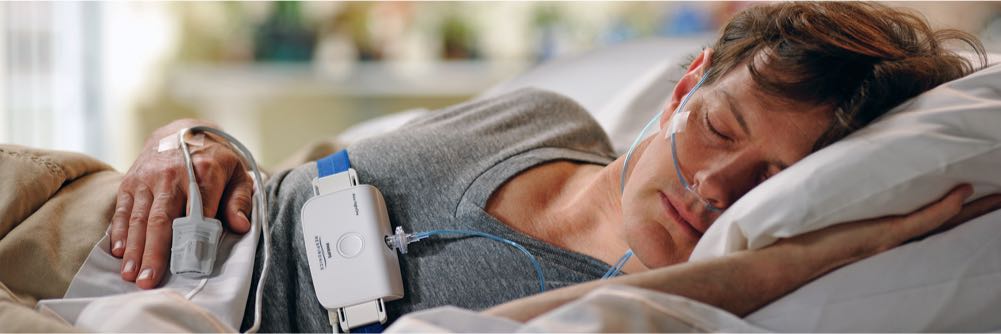Home Sleep Testing FAQ
What should I do on the day of my test?
Avoid napping- A good night’s sleep is important on the night of your test. Stick to your normal routine and refrain from activities that may interfere with a good night’s sleep (i.e., excessive alcohol intake and/or caffeine).
Do I need to go to bed at a certain time?
Stick to your regular bedtime. The number of hours you sleep is what is most important for this test (see #3). When you are ready to sleep, you will attach the sensors to your body as instructed in the user manual. When you wake up in the morning, you can remove the sensors. You will then need to return the HST device to the office so we can download the information and have our sleep physicians interpret the results.
How long do I need to wear the device for?
At a minimum, we need 4 hours of good sleep data. We strongly recommend you turn the device on and begin recording as soon as you get into bed. Keep the device recording until you wake up in the morning. The more sleep data collected, the more likely you are to have a successful test.
Do I need to press anything to power on the device?
No. The device will power itself ON when the belt is around your chest, connected securely to both sides of the device, and the device senses your chest movement. When all three sensors (belt, cannula, and finger sensor), are connected, 3 sensor lights will appear and should turn green to indicate good connection. If one of these icons remains yellow, it means that the sensor needs to be connected or adjusted. Allow a few seconds for the icon to change from yellow to green after you connect or adjust the sensor. To end your study, take off the sensors and disconnect them from the Alice NightOne device. The device will shut off automatically after disconnecting the belt.
What if I need to get up in the middle of the night?
If you need to get up to use the bathroom, get a drink, let a dog out, etc., please leave the device on and recording. You will only remove the device when you wake up for the day.
What do I do if I see blinking lights?
If sensor light is blinking yellow it means that that specific sensor needs to be adjusted. Please check your user manual, and ensure you are following the instruction correctly. The lights turn solid green when connected correctly.
What if the pulse oximeter finger sensor is too tight on my index finger.
If the finger sensor is too tight to wear on your index finger, it is okay to wear it on another finger that is more comfortable, such as your ring finger. If you are having difficulty keeping the sensor on your finger, you can gently wrap it with the tape provided in your HST kit.
Do I need to sleep on my back?
Sleep Apnea is more prevalent when sleeping on your back. We like to obtain information with patients starting on their back as well as on their and side. But don’t worry too much about position. The main goal is for you to get sleep.
Can I take my medications, including sleeping medication?
Yes, take your prescribed medications as normal, unless otherwise directed by your physician.
How many nights do I need to do the Home Sleep Test?
Most often it is one night but this is determined by your insurance company. The sleep center Prior Authorization Team verifies this for each individual prior to the study.
Can I take over the counter sleeping aids when using the HST?
Yes, there’s no contraindications for over the counter sleeping aids, if anything this may help you sleep and allow us to get better data.
How do I know everything was properly recorded?
Unfortunately, there’s no way for you to know until you return your machine and have a trained professional download the information.
Can I use my Oral Appliance device that was prescribed to treat sleep apnea during the test?
Generally, No. However, sometimes you will be ordered to use an oral appliance (prescribed to treat sleep apnea) with your test. Please double check with your provider if you are unsure whether to use your oral appliance during your home sleep study. Please note devices such as Invisalign, a bite guard or retainer are fine to wear during the HST. This applies only to an Oral Appliance Device used to treat Obstructive Sleep Apnea.
Can I use my CPAP during the test?
No, you will not be able to use your PAP therapy device while doing the HST.
What are the next steps?
It takes seven business days for your home sleep test report to come back. Results will be reviewed at your scheduled follow-up appointment. If you do not already have this appointment, please contact us as soon as possible.


